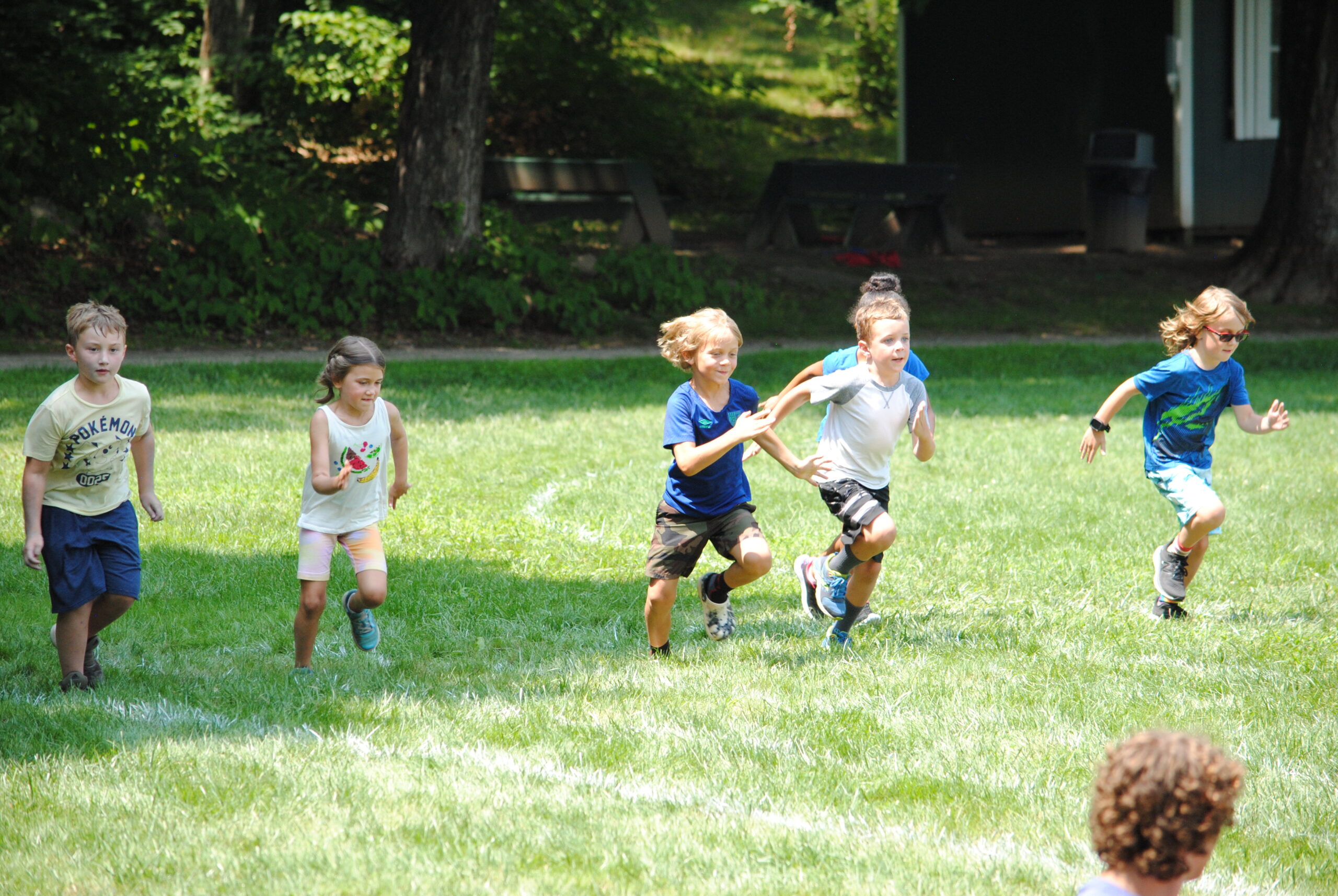10 Lifelong Skills Gained from Summer Day Camp
- Independence – Children make decisions without parents guiding them every step. They learn to trust their judgment. At camp, they do it surrounded by a safety net of relatable near-peer adults to keep them out of harms way.
- This builds self-reliance. When campers know they can handle things on their own, they develop confidence in their abilities. They become more willing to take on challenges without hesitation. Read more about fostering independence in kids.
- Teamwork – Group activities teach how to cooperate, listen, and contribute to shared goals.
- Learning to work with others prepares children for school, sports, and later, life! Strong teamwork skills help them become better leaders, collaborators, and problem-solvers. Why teamwork matters for kids.
- Resilience – Challenges like trying a new activity, learning a new skill, or resolving conflicts build confidence and perseverance. We endeavor to create a spiral of successes for our campers, but when properly supported the occasional failure is healthy.
- Learning to push through setbacks teaches grit. Whether it’s losing a game, struggling with a craft, or facing rejection, children learn that failure isn’t the end—it’s part of growth. The science behind resilience.
- Communication – Talking with peers, counselors, and new friends improves speaking and listening skills.
- Being able to express ideas clearly and understand others is essential for forming relationships and succeeding in school and work. Good communication skills lead to stronger friendships and more confidence. Tips for helping kids communicate better.
- Problem-Solving – From building a fort to planning a skit, or crossing an imaginary perilous pit filled with peanut butter–children learn how to think creatively and adapt.
- Facing and overcoming challenges helps them develop critical thinking skills. When campers figure things out on their own, they gain confidence and learn how to approach future problems with a positive mindset. How problem-solving skills help kids thrive.
- Responsibility – Following a schedule, keeping track of belongings, and completing tasks foster accountability.
- Children learn that actions have consequences. Being responsible for their own things, their time, and their commitments helps them build good habits that last a lifetime. Ways to teach kids responsibility.
- Leadership – Opportunities to guide others, whether in a game or a group task, build leadership skills.
- Leadership isn’t just about giving orders—it’s about inspiring, organizing, and making thoughtful decisions. Camp provides safe spaces for kids to step up and lead. What makes a good young leader?
- Adaptability – Every day brings new activities, people, and situations, helping children become flexible and open-minded.
- Being able to handle change with a positive attitude is a key life skill. Campers who learn to adapt tend to be more resilient, creative, and confident in new situations. The importance of adaptability in kids.
- Social Skills – Making friends, resolving differences, and working in groups strengthen interpersonal abilities.
- Good social skills lead to better peer relationships, stronger support networks, and improved mental health. Camp is a great place to practice these skills in a fun, low-pressure environment. How social skills impact success.
- Confidence – Trying new things in a supportive environment helps campers believe in themselves.
- When children succeed at something unfamiliar, they start to believe in their own abilities. Confidence leads to curiosity, risk-taking, and the courage to step outside their comfort zones—key traits for lifelong learning and success. Building confidence in kids.


Comments are closed